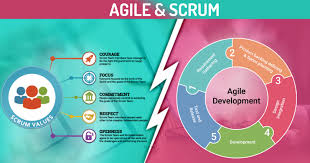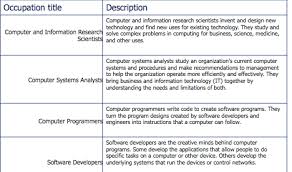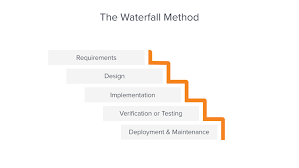Exploring the Top Companies for Software Engineers in the Tech Industry
The Best Companies for Software Engineers
Software engineers are in high demand, and many top companies are constantly seeking talented individuals to join their teams. If you’re a software engineer looking for a company that values innovation, collaboration, and growth, consider exploring opportunities at the following organizations:
Google
Google is known for its cutting-edge technology and innovative projects. Software engineers at Google have the opportunity to work on a wide range of products and services that impact millions of users worldwide.
Microsoft
Microsoft is a global leader in software development, with a strong focus on cloud computing, artificial intelligence, and productivity tools. Software engineers at Microsoft have access to resources and support to drive impactful solutions.
Amazon
Amazon is not only an e-commerce giant but also a tech powerhouse. Software engineers at Amazon work on diverse projects spanning from logistics optimization to machine learning applications.
Apple
Apple is renowned for its consumer electronics products and software ecosystem. Software engineers at Apple play a crucial role in developing user-friendly interfaces and cutting-edge technologies.
Facebook (Meta)
Meta (formerly Facebook) is a social media giant with a strong emphasis on connecting people globally through technology. Software engineers at Meta work on complex systems that power social networking platforms.
These companies offer competitive salaries, comprehensive benefits packages, opportunities for career advancement, and a dynamic work environment that fosters creativity and innovation. Whether you’re interested in web development, mobile applications, artificial intelligence, or cloud computing, these companies provide an ideal platform for software engineers to thrive.
If you’re passionate about technology and eager to make an impact through your coding skills, consider exploring career opportunities at these top companies for software engineers.
Top 8 Reasons Software Engineers Thrive at Leading Companies
- Competitive salaries
- Comprehensive benefits packages
- Opportunities for career advancement
- Cutting-edge technology projects
- Collaborative work environment
- Access to resources and support
- Innovative and creative culture
- Global impact and reach
Challenges Faced by Software Engineers in Top Companies: Competition, Pressure, Work-Life Imbalance, and Bureaucracy
- Intense competition for advancement opportunities within the company.
- High pressure to deliver results quickly due to fast-paced work environments.
- Limited work-life balance, with long hours often required to meet project deadlines.
- Bureaucratic processes and hierarchies may hinder innovation and decision-making.
Competitive salaries
One standout advantage of working for the best companies for software engineers is the competitive salaries they offer. These companies understand the value of top talent in the tech industry and compensate their software engineers accordingly. Competitive salaries not only reflect the expertise and skills of software engineers but also serve as a motivating factor for them to excel in their roles. By providing attractive compensation packages, these companies attract and retain top talent, ensuring that software engineers feel valued and rewarded for their contributions to innovative projects and cutting-edge technologies.
Comprehensive benefits packages
Comprehensive benefits packages offered by the best companies for software engineers provide valuable perks beyond competitive salaries. These packages often include health insurance, retirement plans, paid time off, professional development opportunities, and other incentives that contribute to a well-rounded and fulfilling work experience. By prioritizing the well-being and growth of their employees through comprehensive benefits, these companies demonstrate their commitment to supporting the overall health and success of their software engineering teams.
Opportunities for career advancement
One significant advantage of working at the best companies for software engineers is the abundance of opportunities for career advancement. These companies prioritize employee growth and development, offering various paths for software engineers to progress in their careers. Whether through mentorship programs, training workshops, or internal promotions, talented individuals have the chance to take on more challenging roles, lead innovative projects, and expand their skill set within a supportive and dynamic work environment. This commitment to career advancement not only enhances job satisfaction but also ensures that software engineers can continually evolve and excel in their professional journey.
Cutting-edge technology projects
Top companies for software engineers offer the exciting opportunity to work on cutting-edge technology projects that push the boundaries of innovation. From developing advanced artificial intelligence algorithms to creating groundbreaking products that shape the future of technology, software engineers at these companies are at the forefront of technological advancements. Being part of projects that leverage the latest tools and technologies not only challenges engineers to grow their skills but also allows them to contribute to groundbreaking solutions that have a significant impact on society.
Collaborative work environment
A key advantage of working at the best companies for software engineers is the collaborative work environment they offer. These companies prioritize teamwork and open communication, allowing software engineers to collaborate effectively with their peers, share knowledge, and collectively solve complex problems. The collaborative culture fosters creativity, innovation, and continuous learning, creating a supportive atmosphere where engineers can thrive and contribute their unique skills to impactful projects. By working in a collaborative environment, software engineers can leverage diverse perspectives, enhance their problem-solving abilities, and collectively drive the success of the team and the company as a whole.
Access to resources and support
Access to resources and support is a significant advantage offered by the best companies for software engineers. These companies provide their employees with cutting-edge tools, technology platforms, and training programs to enhance their skills and knowledge. Having access to such resources enables software engineers to stay at the forefront of industry trends, collaborate effectively with colleagues, and tackle complex challenges with confidence. Additionally, the support system in place at these companies encourages professional growth, innovation, and continuous learning, fostering a conducive environment for software engineers to thrive and excel in their roles.
Innovative and creative culture
Top companies for software engineers are known for fostering an innovative and creative culture that encourages employees to think outside the box and push the boundaries of technology. By promoting a culture of innovation, these companies inspire software engineers to explore new ideas, experiment with cutting-edge technologies, and collaborate on groundbreaking projects. This environment not only fuels creativity but also drives continuous learning and growth, enabling software engineers to stay at the forefront of technological advancements and make a significant impact in the industry.
Global impact and reach
One significant advantage of working for the best companies for software engineers is the opportunity to have a global impact and reach. These companies operate on a large scale, serving diverse markets and millions of users worldwide. Software engineers have the chance to work on projects that transcend geographical boundaries, making a difference on a global scale. By contributing to products and services that reach people around the world, software engineers can see the direct impact of their work and be part of innovations that shape the future of technology.
Intense competition for advancement opportunities within the company.
One significant drawback of working at the best companies for software engineers is the intense competition for advancement opportunities within the organization. With a high concentration of top talent and ambitious professionals, vying for promotions or leadership roles can be challenging and highly competitive. This competitive environment may create pressure and stress among software engineers, as they strive to stand out and demonstrate their value in a crowded field of talented individuals. As a result, navigating the internal competition for career growth within these prestigious companies can require exceptional performance, strategic networking, and continuous skill development to secure desired advancement opportunities.
High pressure to deliver results quickly due to fast-paced work environments.
In the fast-paced work environments of top companies for software engineers, a significant challenge faced by professionals is the high pressure to deliver results quickly. With tight deadlines and a constant demand for innovation, software engineers often find themselves navigating intense workloads that require rapid problem-solving and efficient execution. The need to meet strict timelines while maintaining high-quality standards can create a stressful environment that may impact work-life balance and job satisfaction. Despite the rewarding opportunities these companies offer, the pressure to perform at an accelerated pace can be a notable downside for software engineers seeking a more balanced and sustainable work experience.
Limited work-life balance, with long hours often required to meet project deadlines.
One significant drawback of working for some of the best companies for software engineers is the limited work-life balance they offer. These companies often demand long hours from their employees to meet tight project deadlines and maintain a competitive edge in the industry. The high-pressure environment and the expectation of continuous productivity can lead to burnout and impact the overall well-being of software engineers, making it challenging to maintain a healthy balance between work and personal life.
Bureaucratic processes and hierarchies may hinder innovation and decision-making.
In some of the best companies for software engineers, bureaucratic processes and hierarchies can pose a significant challenge by potentially impeding innovation and slowing down decision-making. When rigid structures and complex approval procedures are in place, it may be difficult for software engineers to quickly implement creative solutions or make timely decisions. This can lead to inefficiencies, delays in project execution, and missed opportunities for groundbreaking advancements in technology. Companies that recognize and address these obstacles by fostering a more agile and collaborative work environment stand a better chance of unleashing the full potential of their software engineering teams.










